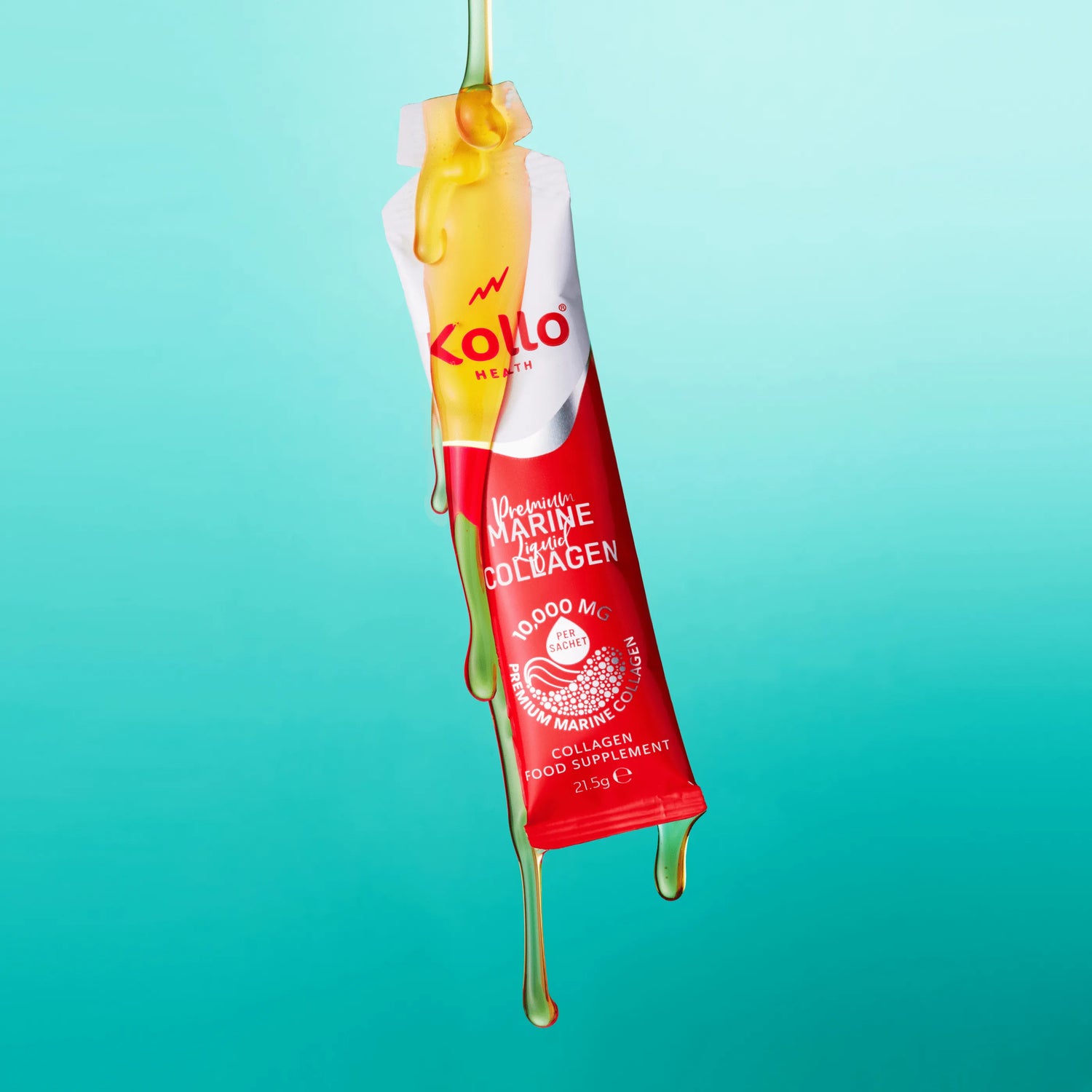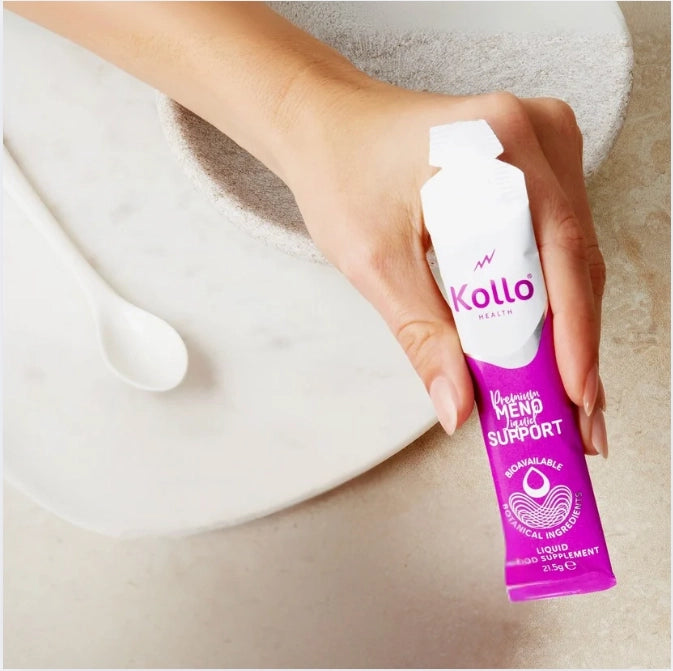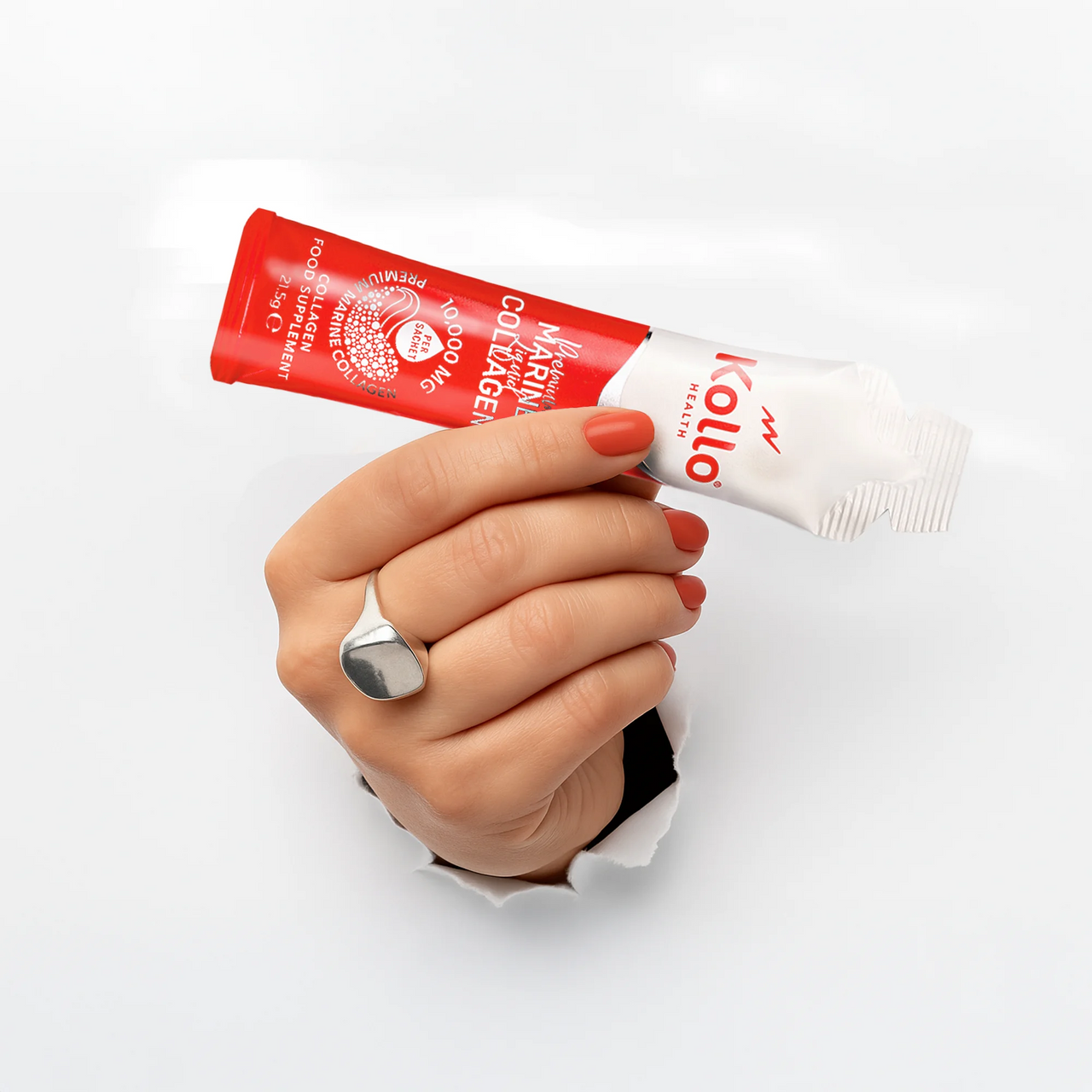You’ve probably heard of collagen. You might even be aware of what its benefits are. What was once the preserve of the elite end of the beauty industry is becoming increasingly popular with ordinary people. But do you know what it’s actually made of?
What is collagen made of?
It’s a protein made of amino acids, primarily proline, glycine, hydroxyproline and arginine. These are so-called ‘non-essential’ amino acids because rather than getting them from the food we eat, our body produces them naturally.
Collagen is a building block of a healthy body. It’s found in the flesh and connective tissue of mammals, helping to maintain firmness and suppleness of the skin. It also helps keep skin elastic and prevents sagging. Collagen fibres support body tissues, so a loss of collagen is a major cause of wrinkles.
Ligaments hold the joints together and tendons attach the bone to the muscle. Bones, muscles, tendons and ligaments are all made up of proteins and one of the most predominant of these is collagen.
A good way of thinking of collagen is as a scaffold – it helps provide the body with both strength and structure.
 Different types of collagen
Different types of collagen
There are an amazing 16 types of collagen in the human body, but 80 to 90 per cent of them belong to types 1, 2 and 3. Type 1 collagen is particularly strong and is capable of being stretched. By weight, they are actually stronger than steel.
What does collagen do?
Collagen proteins help to strengthen different structures in the body. But it’s not just about strength and structure. It also plays a part in overall skin health, which in turn feeds into our general wellbeing. It prevents the absorption of environmental pollution and pathogens. It can also help to prevent and slow down the progress of cancerous cells.
You can also find collagen in your blood vessels, in your digestive tract, heart, gallbladder and kidneys.
We all lose collagen
We all lose collagen over time and as we age the rate at which we produce collagen decreases. This process begins around age 25 and our rate of collagen production decreases by 1.5% for every year we age. Aspects of our lifestyle. such as sugar intake and tobacco smoking also contribute to the rate of loss.
The ultraviolet rays in sunshine increase the rate at which collagen breaks down, fibres become damaged and abnormal elastin builds up.
As we lose collagen our skin grows thinner, as do our hair follicles. Both can look lifeless. Our joints grow stiffer and our limbs less elastic and able to recover from exertion. Research is exploring the clinical significance of collagen.
What are collagen supplements made of
Collagen peptide supplements are usually made from fish (marine collagen) or from bovine connective tissue. Marine collagen benefits are widely recognised and research is underway to develop vegan sources of collagen but these are not yet widely available.
Does drinking collagen actually work?
If you’re already keeping to a balanced healthy diet and restrict your sun exposure, you might be wondering what else you can do to increase your collagen levels.
Collagen drinks are designed to supplement your natural collagen levels. Drinking collagen works not by adding directly to the collagen peptides in your dermis, but by creating a feedback mechanism that prompts an increase in your own collagen production. Collagen drinks impact on deeper layers of skin than creams. While some might wonder if you can take too much collagen, when used correctly marine collagen reviews are generally positive. The best marine collagen UK could impact positively on your overall health.







